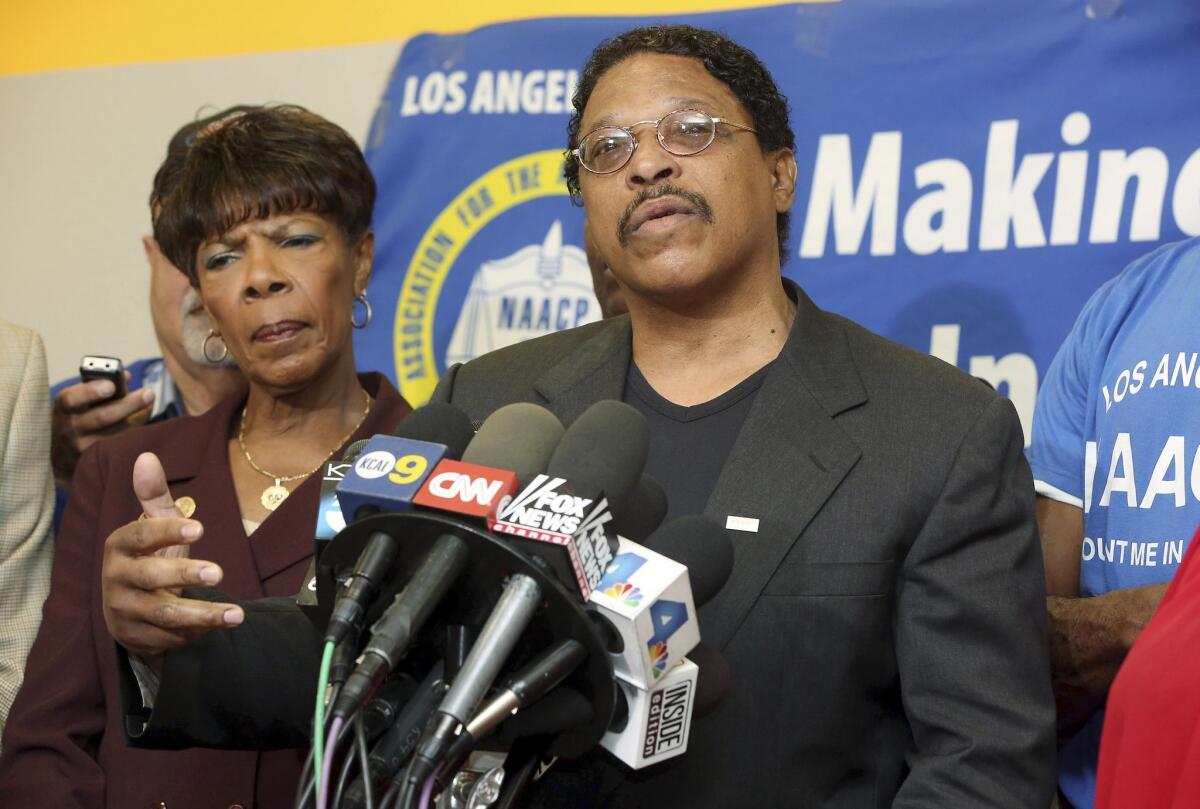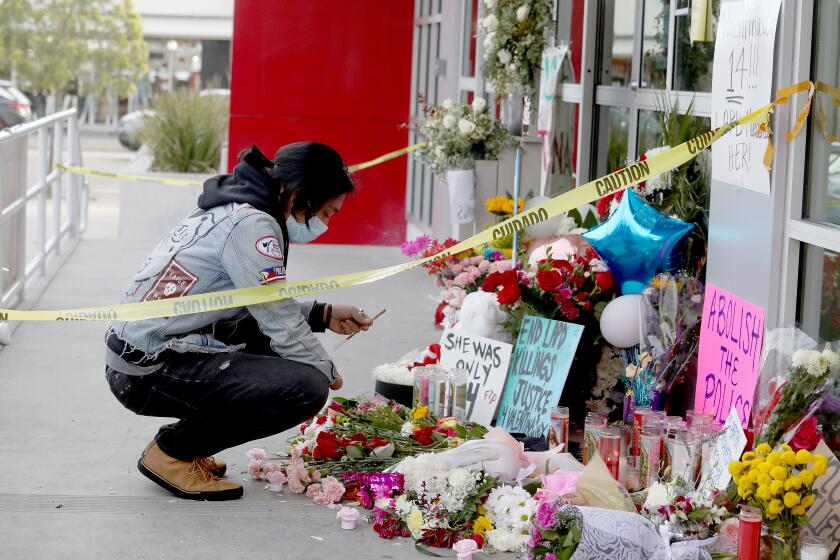NAACP faces tough questions over ties to Donald Sterling

Officials at the Los Angeles chapter of the National Assn. for the Advancement of Colored People faced tough questions Monday about the organization’s long relationship with Clippers owner Donald Sterling after a recording of racist remarks allegedly made by Sterling surfaced.
The Los Angeles chapter of the NAACP had been scheduled to give Sterling the group’s lifetime achievement award at its May 15 banquet. But on Sunday, officials withdrew the honor.
On Monday, Leon Jenkins, president of the Los Angeles branch of the NACCP, declined to say how much Sterling donated to the group.
Full coverage: The Donald Sterling controversy
Jenkins told reporters the relationship between Sterling and the Los Angeles branch office of the NAACP dated 15 to 20 years.
Sterling is known for his various charity events that have benefited organizations that help the needy, including nonprofits serving the local Latino and African American communities.
But there have also been racially charged accusations against him. He has strongly denied he is biased toward anyone and has pointed to his charitable work.
A Los Angeles County Superior Court jury rejected NBA great Elgin Baylor’s wrongful-termination lawsuit against the Clippers.
Baylor claimed he was harassed and subjected to age discrimination leading to his 2008 departure after 22 years as a Clippers executive. When Baylor filed the suit in February 2009, he alleged that a racist culture existed at the Clippers. Baylor called it a “plantation mentality” in a deposition and said that Sterling rejected a coaching candidate, Jim Brewer, because he was black.
But Baylor in 2011 dropped the race allegations from the suit.
Sterling and his wife, Rochelle, agreed to pay a record settlement of $2.7 million in 2009 regarding allegations that they discriminated against African Americans, Latinos and families with children at scores of apartment buildings they own around Los Angeles.
The settlement was the largest ever obtained by the Justice Department in a housing discrimination case involving apartment rentals, officials said. Under the agreement, the Sterlings’ insurers would pay $2.625 million to a fund for people who were allegedly harmed by their discriminatory practices, officials said. Sterling’s attorney at the time said his client denied any wrongdoing and didn’t discriminate.
Jenkins said the organization asked Sterling about that suit.
“If there’s any of the allegations in those lawsuits that is true, you need to pay those people, you need to make amends, and the case was settled,” Jenkins recalled officials telling Sterling.
The group gave Sterling a humanitarian award in 2009.
Asked if the NAACP would ask Sterling to return it, Jenkins said no.
“This is not a Heisman Trophy, dude,” Jenkins said.
In explaining earlier discussions about Sterling’s racial views, Jenkins added: “Rumors about someone’s character is not something that we deal with. We deal with the actual character of the person as we see it and as it is displayed, so if there’s rumors that doesn’t play a factor in our decision.”
Asked if there was room for forgiveness, Jenkins said Sterling would have to spend time to prove to the African American community that those words don’t reflect his true feelings.
“I think there’s room for forgiveness,” he said. “I wouldn’t be a Christian if I said there wasn’t.”
[Updated at 2:23 p.m.: He said the group would return money from Sterling but did not say how much.]
More to Read
Start your day right
Sign up for Essential California for news, features and recommendations from the L.A. Times and beyond in your inbox six days a week.
You may occasionally receive promotional content from the Los Angeles Times.







